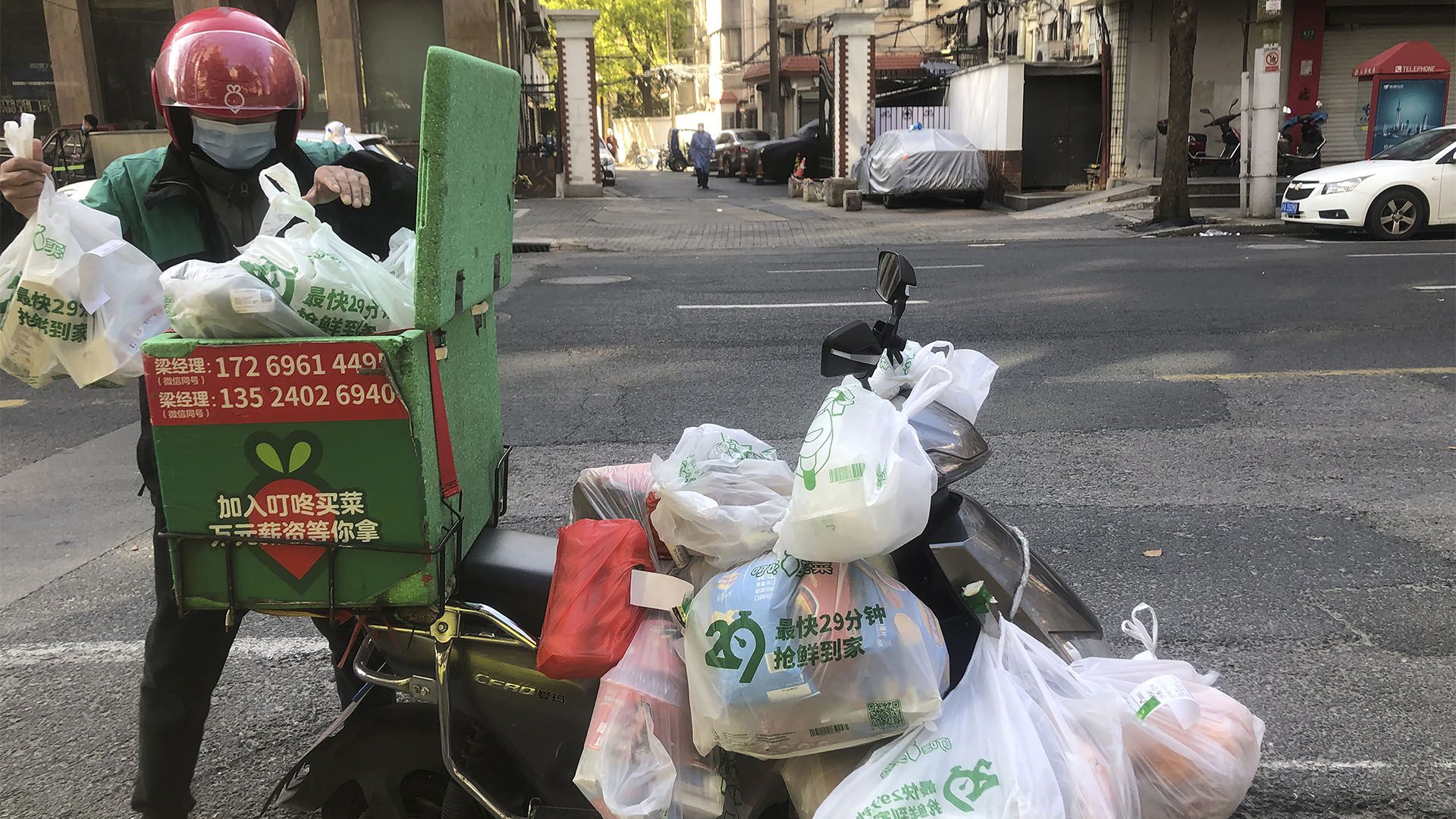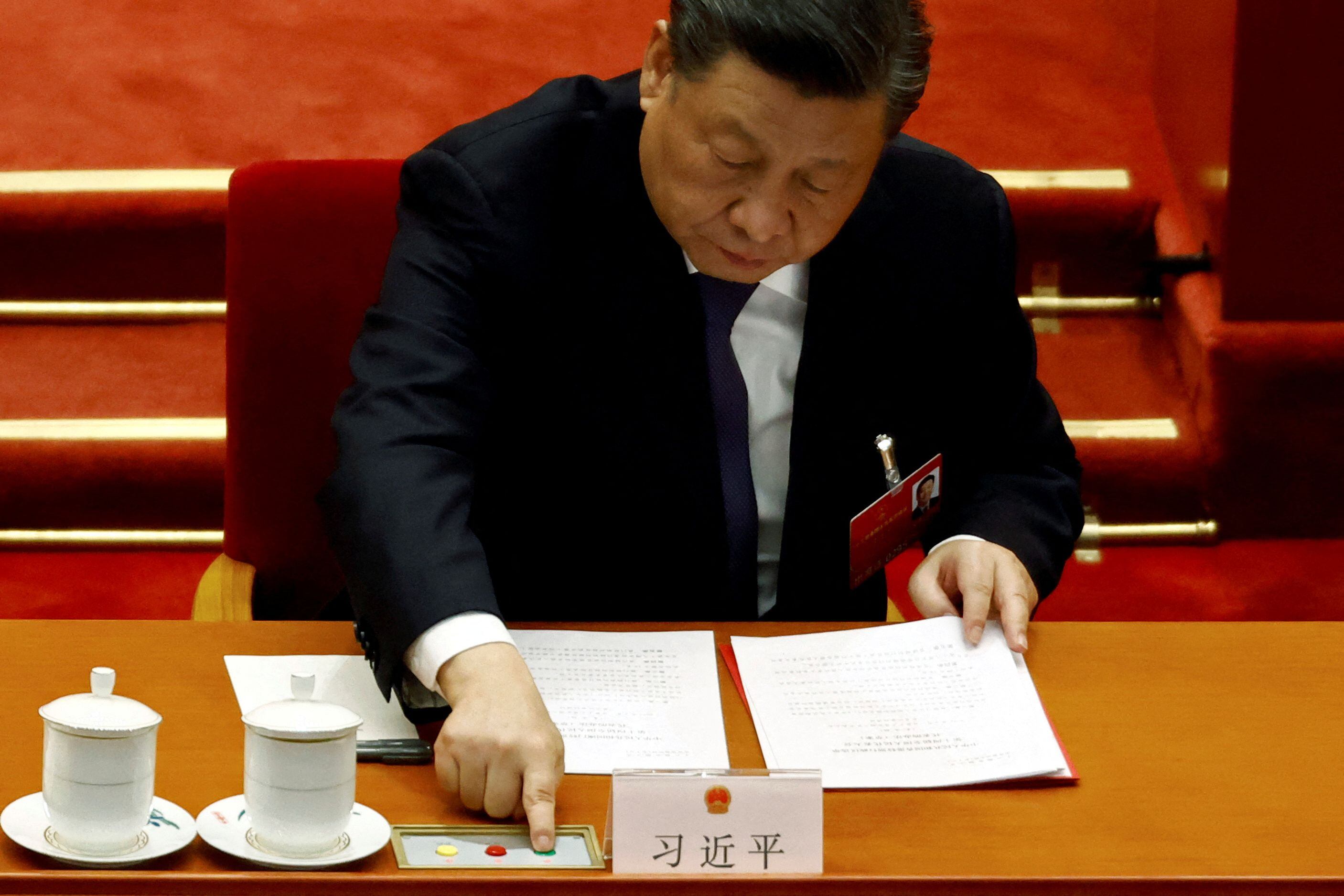:quality(85)/cloudfront-us-east-1.images.arcpublishing.com/infobae/T3K3NJOSLRDT7P5GQBCPMF37OU.jpg 420w)
Most countries, with the notable exception of China, have abandoned the “zero COVID” strategy, which seeks to prevent any type of circulation of the virus, and which now seems anachronistic even though it was defended at the beginning of the pandemic.
“What was it for?” said to AFP Hong Konger Jenny Leung, a phrase that sums up the fatigue and misunderstanding of part of the population in the face of this strategy. Leung lost her job as a waitress last month following the measures of “COVID zero”. And now, many in Hong Kong, a territory affected by a recent violent epidemic wave, are beginning to say that perhaps the time has come to live with the virus.
The same question is asked by the 26 million people of Shanghai who have been locked up for more than 20 days without food or medicine. Fed up, last Saturday the looting began.
A shocking video shows desperation in a block of skyscrapers in the west of the city. As the inhabitants shouted out their windows, a small drone with a speaker tried to quell their protest with a dystopian message: “Dear residents... Please strictly adhere to the municipal government epidemic prevention regulations. Control your soul's desire for freedom and refrain from opening the windows to sing. This behavior carries a risk of transmission.”
With nearly 90% of China's population fully vaccinated, many observers from outside the country — and some from within — wonder why policymakers continue to refuse to abandon their “zero COVID” approach, despite fears that the strategy is becoming unsustainable.
In fact, in Shanghai, where residents were confined to their homes, workplaces and, in one case, even in a public toilet as part of the widespread repression of the virus, the recent wave has so far produced only one serious case and no death, according to official data, despite the accumulation of more than 100,000 cases, in its mostly asymptomatic, in the new epicenter.

In dialogue with Newsweek, Yanzhong Huang, senior global health researcher at the Council on Foreign Relations, describes Shanghai's COVID policy as a “strange turn”. It is that Shanghai's chaotic response to the crisis suggests that local leaders were not prepared to impose such strict measures, yet they took them.
“For the supporters of that policy, it is not only politically justifiable, but it also makes sense from a public health standpoint, especially when they anticipate the worst-case scenario,” Huang adds. According to some projections, the abandonment of the zero-COVID strategy could saturate the Chinese healthcare system and cause more than a million deaths. “But the question here is to what extent the worst-case scenario is likely. I think that many of the policymakers, those who believe in the zero-COVID strategy, overestimate the probability,” he says.
Huang points to factors such as China's high vaccination rate and epidemiological data from Shanghai and Hong Kong showing that inactivated vaccines manufactured in China can significantly reduce the risk of severe cases and death.
“In my opinion, there is a better and more cost-effective approach that may not be able to avoid the wave of cases when it opens, but it can minimize damage by reducing the number of fatalities and serious cases; and, most importantly, avoiding disruption to society and the economy,” he says.
“This debate about zero COVID or coexistence with the virus is no longer just a debate between which method works best. It is now characterized as a competition between two political systems, even two civilizations.”
Analysts explain that “zero COVID” is the policy that the Chinese regime chose for the continuation of socio-political stability in 2022, a year in which China's President Xi Jinping is expected to use his political achievements as reasons for being re-elected at the CCP's 20th National Congress that will be held this fall. Consequently, the ideology of the party is part of the public health approach.
In an April 6 letter from the CCP's Shanghai Committee, members were told to “draw the sword and fight” bravely against actions that interfere or undermine the anti-epidemic battle. “Those who step up at critical moments and risk everything in times of crisis are true communists,” the letter said.

“I think it now appears that this scientific and selective approach has given way to a tougher and more politicized approach. Ultimately, this is a political decision, not taken by public health officials,” he says. “You see how this is essentially being characterized. This debate about zero COVID or coexistence with the virus is no longer just a debate between which method works best. It is now characterized as a competition between two political systems, even two civilizations,” says Huang.
“Zero COVID ends when Xi says it's over,” says Steve Tsang, professor and director of the China Institute of SOAS in London. “What underpins the priority given to stability is Xi's imperative to secure a third, and therefore unlimited, term at the 20th Party Congress,” says Tsang.
“The zero-COVID policy is a policy set by Xi, so it cannot be abandoned unless and until Xi sees that its continuation is more harmful to him than the opposite” - and there is no evidence of it, he says. “Ultimately, keeping Xi in power is the top priority of the Chinese government.”
KEEP READING:
